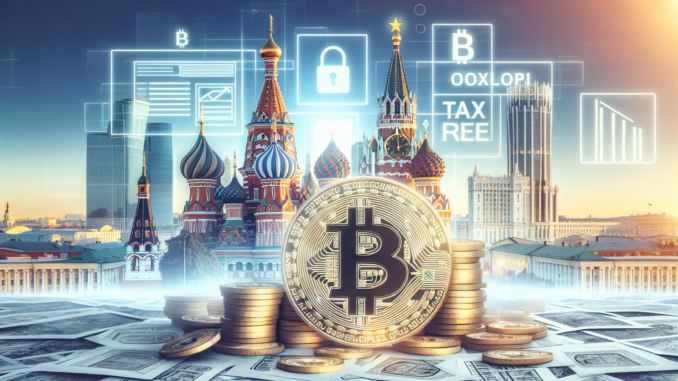
Russia has taken a groundbreaking step by recognizing Bitcoin as property, paving the way for greater integration of cryptocurrencies into the economy. President Vladimir Putin recently signed a new law that recognizes not only Bitcoin but also other cryptocurrencies as property and exempts them from value-added tax (VAT). This decision could have far-reaching implications for the global crypto market. What does this mean for the crypto community, and what opportunities and challenges does it bring?
Background of the decision
Russia’s recent decision is part of a larger trend toward the recognition and regulation of cryptocurrencies worldwide. Russia has played an ambivalent role in dealing with digital currencies, torn between acceptance and strict regulation. This new legislation represents a significant step in defining the legal status of cryptocurrencies and facilitating their use in economic transactions.
By recognizing Bitcoin and other cryptos as property, a legal foundation is created that offers more security for both businesses and individuals. This could promote cryptocurrency trading and attract new investments.
The new law in detail
The enacted law exempts cryptocurrency transactions from value-added tax. This makes trading digital assets more attractive since traders no longer have to pay additional taxes on transactions. Recognition as property also means that cryptocurrencies can now be treated contractually similarly to physical or other financial assets.
Through the new legal classification, cryptocurrencies gain higher status and could be used in the future as collateral for loans or other financial constructs.
Impact on the crypto market
This step by Russia could have significant implications for the crypto markets. On one hand, the elimination of VAT could lead to an increase in trading volumes. Investors and traders would benefit from more efficient transactions, which could enhance the image and acceptance of cryptocurrencies. Furthermore, Russia, with its substantial technological expertise, could increasingly serve as a hub for crypto innovations, attracting more international players.
On the other hand, there is the possibility that Russia is using this measure to harness the influence of cryptocurrencies on the economy to circumvent the sanctions it faces. This could intensify geopolitical tensions and prompt international regulatory authorities to take action.
Opportunities and challenges
The new regulations offer exciting opportunities for investors and businesses. The tax relief could make investments in cryptocurrencies more attractive, potentially leading to a price increase in the long term. Companies could also develop new business models in which cryptocurrencies play a central role.
However, challenges are also expected. Accepting cryptocurrencies as property could raise new legal issues, especially in connection with international standards. It remains to be seen how other countries will react to this step and whether Russia will also take steps to combat money laundering and fraud as part of these changes.
Conclusion: A significant step for the crypto scene
The recognition of Bitcoin and other cryptocurrencies as property in Russia and their exemption from VAT marks a significant step in the evolution of digital currencies. It shows that states are increasingly willing not only to tolerate cryptocurrencies but actively integrate them into existing systems. This could give a significant boost not only to Russia itself but also to the global crypto market. Investors and companies should closely monitor developments and weigh the new opportunities these changes bring. In the long term, this decision could serve as a catalyst for broader acceptance of cryptocurrencies worldwide.
Leave a Reply